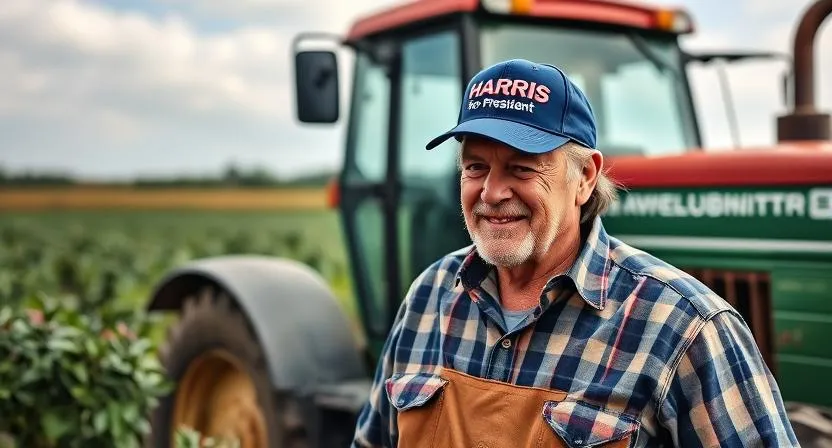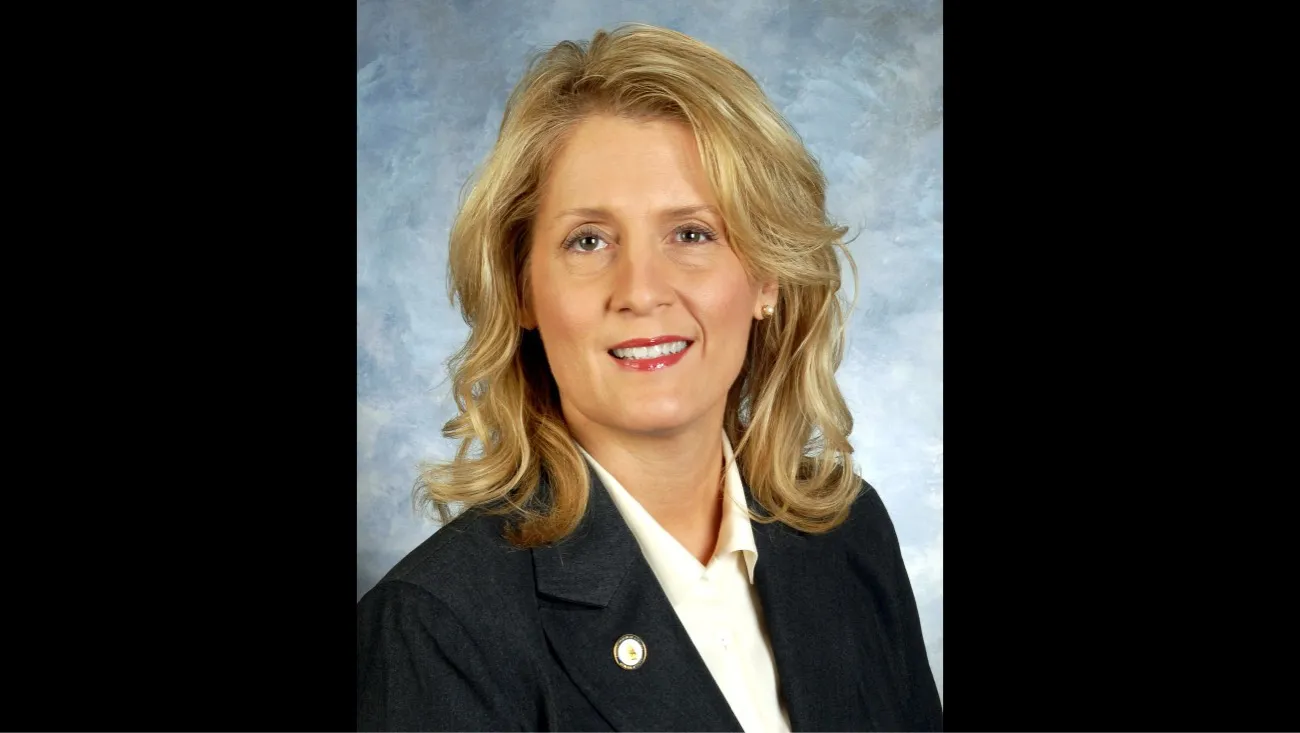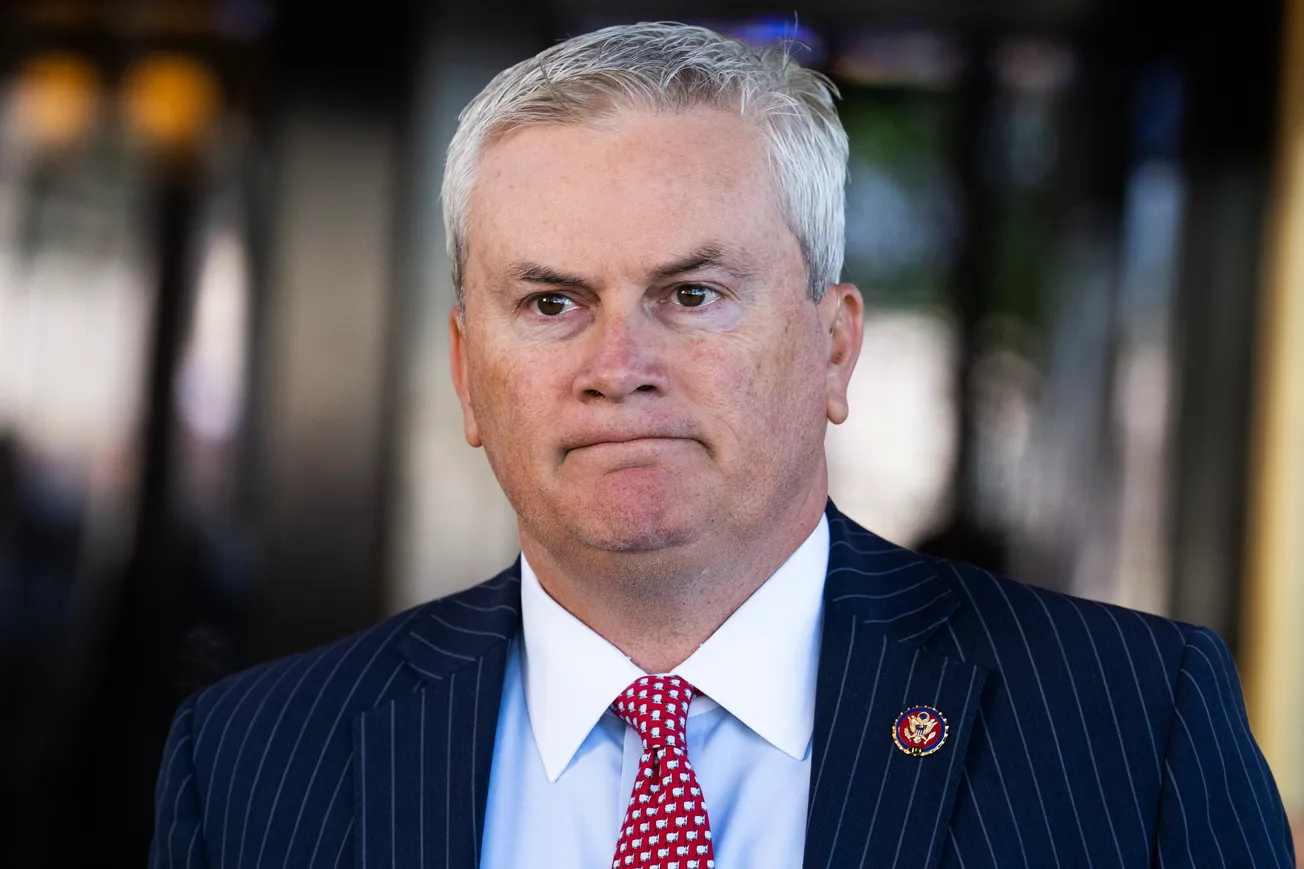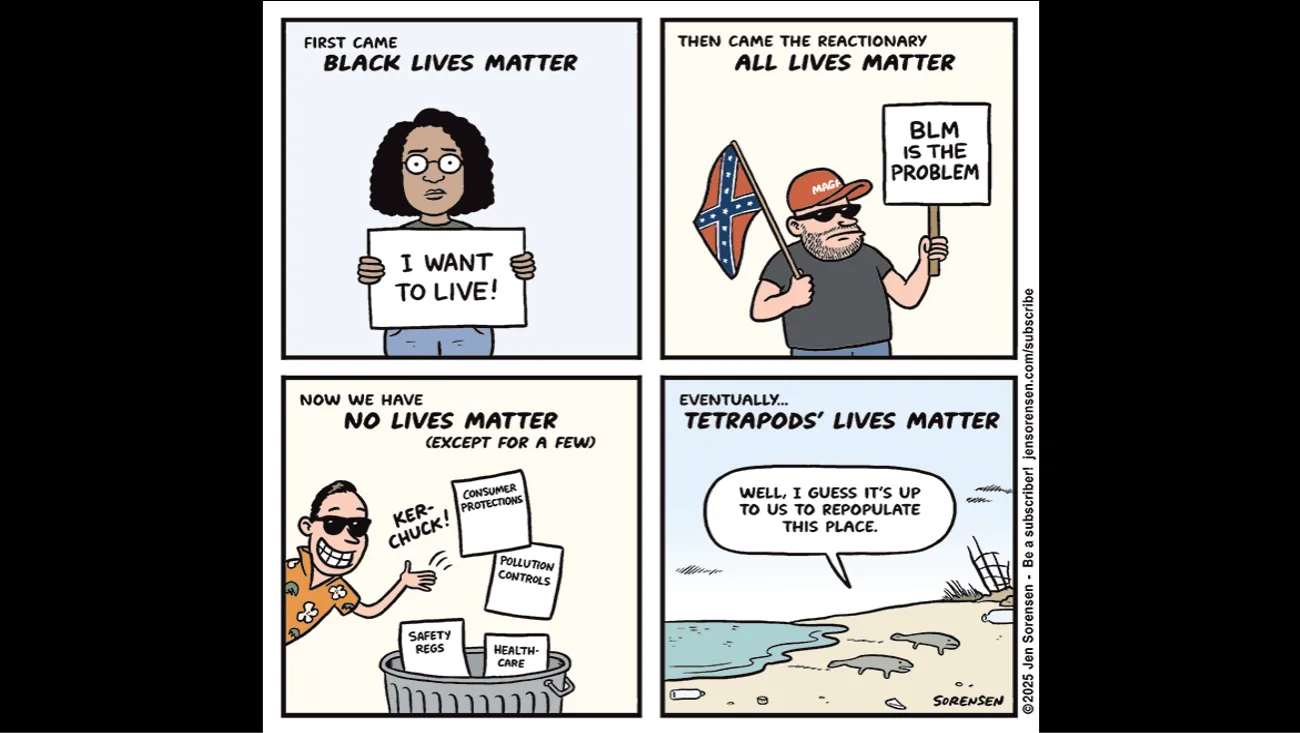by Christiana Wayne of The Daily Yonder
For a few weeks last fall, during the final stretch of the presidential race, there was a bit of a sense that the Democrats had figured it out. They had paired their elite-educated, bi-coastal Black woman nominee with a state school-educated white man from Minnesota with a working-class background. They sold Harris/Walz camouflage baseball caps. They even released footage of Governor Walz loading his shotgun at a pheasant hunting event in Nebraska.
After the loss, the wide-sweeping postmortem from Democrats nationally suggested two broad missteps: 1) The party relied too much on identity politics and fringe culture, alienating the ‘common man’ voter, and 2) The party was too weak on economic issues, positioning itself too closely with corporate interests as the average American struggles to pay the bills.
Opposing and hostile camps coalesced around these two explanations for Democrats’ failure, with each calling the other an existential threat to the future of the party. Amidst a chaotic reckoning, there is one thing almost every Democrat agrees on: the party needs to change.
It was in this spirit that the Rural Urban Bridge Initiative (RUBI) drafted an open letter to Ken Martin, the chairperson of the Democratic National Committee (DNC). “We extend this invitation to you to work together in prioritizing and fixing the Democratic Party’s profound deficits with rural and working-class voters.”
Anthony Flaccavento, a farmer and progressive community organizer in southwest Virginia, founded RUBI in 2020, along with attorney Erica Etelson in northern California. RUBI is a 501(c)(4), what’s known as a welfare organization allowed to engage in political lobbying. It envisions a prosperous, robust rural America and a national political landscape that does not condescend to rural Americans.
“In a perfect world, we would be spending less time trying to reform the Democratic party,” Flaccavento told the Daily Yonder. “We’d have two parties that were sort of competing for attention to meet working people and rural people, but we don’t have that.”
The open letter, which has collected several hundred signatures from elected officials and organizers, calls for the DNC to allocate $400 million — just 10% of the over $4 billion the party spent on advertisements in 2024 — to organizing for rural and working class districts and candidates.
In addition to organizing support, RUBI outlines a policy platform that it believes would both economically revive rural working American communities and reinvigorate the party, including apologizing for “disastrous” trade deals and grounding policy in “universal economic populism.”
That word - populism - has scared away Democrats since President Trump made it synonymous with far-right nationalism. But RUBI believes the left cannot allow Republicans a monopoly on populist political power, or the party’s “profound deficits with rural and working-class voters” will only continue. And the deficits are profound.
It’s the Working Class, Stupid
As the Daily Yonder reported, rural America alone did not hand President Trump the election. A rightward shift nationwide and drastic drop-off in urban voter turnout proved vital in the result.
The rural vote, long since shifted right, held at about 35% in Trump’s favor.
The most startling trend of the election was not about rurality but income. For the first time in decades, voters with household incomes under $100,000 ditched the Democrat party for President Trump.

And rural households are on average less wealthy than their metropolitan counterparts.
These numbers suggest that the rural poor have been, for a few election cycles, a bellwether for the Democrats. Now, 2024’s perfect storm of broad economic discontent and grievance politics has come and wrought havoc on the party, but it had been brewing for a long while.
View on the Ground
“I’ll be honest with you, we don’t wait on the state party. We don’t wait on the DNC,” said Jacqueline Farr, chair of Benton County Democrats in central Missouri and one of over 50 county chairs who signed RUBI’s open letter. She and other local Democrats spend their time sending out postcards, organizing town hall meetings, and setting up booths at county fairs and events.
The lack of state and national support for small town Democrats comes not from contempt but from some hazy understanding of rural politics.
Dustin Keith is the chairperson of the party in Russell County, Virginia, a rural county in the southwest corner of the state, just on the edge of coal country. He says he has seen individual voters leave the party as jobs dried up and the national party cozied up to corporate money.
“Labor was by far and above one of the top reasons that our folks had to vote for Democrats,” he told the Daily Yonder. “They supported labor policy, they supported the creation of unions, the strengthening of unions, and Democrats have somewhat turned away from that, which has been even more detrimental.”
Thanks in part, Keith admitted, to effective Republican messaging in Appalachia that pinned the loss of industry to Democrats, workers “felt really betrayed by the Democratic party and didn’t feel as if they were doing enough to help people transition to good paying jobs.”
These economic issues, added to cultural messaging that often blamed Appalachian communities for their difficult circumstances by “voting against their own interest,” meant Keith has seen a once-strong blue stronghold drift rightward. Now, many Democratic candidates for state office hardly campaign in the mountains.

The good old days (when times were bad)
In the late 20th century, the rural vote was not a foregone conclusion. Nixon won it in 1972, then Jimmy Carter, then Reagan. Bill Clinton and George Bush split the rural vote in 1992. But the transformative economic shift at the new millennium created an entirely new paradigm.
“From 2000 to 2010,” historian Keith Orejel writes, “nonmetropolitan areas lost a staggering 35% of total manufacturing employment.” In this fascinating, long history of the 2024 election, he traces rural economic malcontent back several decades. Global trade agreements left once-thriving industrial towns with insurmountable overseas competition. Workers who reliably voted blue because of Democratic union support felt undermined.
“Democratic Party emerged as the champion of a new globalized, knowledge economy,” Orejel wrote. “As a result, the historic party of industrial workers morphed into the home of highly educated metropolitan professionals.”
Orejel thinks the opposing diagnoses of Democratic missteps — too much identity politics vs. too little economic messaging — are a false dichotomy. They are both part of a larger, more existential feeling among rural working class people in the past few decades: feeling left out.
Back on the ground
In Wisconsin, another swing state, Eau Claire County party chair and rural organizer Gloria Hochstein reported the same intra-party issues. She said the DNC, for all its hyperfocus on the state since Hillary Clinton’s 2016 loss there, only focuses on Madison and Milwaukee.
There are logistical reasons for the organizing imbalance. The state party asks canvassers to knock on 40 doors in 2 hours – a doable quota if the door-knockers are in the city, but impossible in the countryside.
“In two hours, you would be lucky if you make five households,” Hochstein told the Daily Yonder. “But when you go rural, you drive up to somebody’s place, chances are [they] answer the door.” It’s this urban-centric thinking that dominates the party, and suggests the rural-urban divide is not an issue merely of money.
Farr in Missouri said the energy in the party is off, too. Zoom calls and organizing meetings with national party leaders Hakeem Jeffries and Ken Martin are somber affairs. “The oomph isn’t there. It isn’t … invigorating.” Most people in the country share these frustrations. According to a new CNN poll conducted in March 2025, only 29% of Americans have a favorable opinion of the Democratic Party, a record low – and lower than the Republican Party at 36%.

Rural frustration with progressive cultural issues flows from the same headwaters as anger at corporate power. When appropriately steered, this frustration too often metastasizes into racism, homophobia, and nativism, and President Trump has harnessed a general anti-establishment sentiment for a far-right agenda.
But the effects of the frustration should not eclipse its roots.
For a decade now, the national party has presumed that “these people are cartoons who can’t be responsive to economic developments,” Orejel told the Daily Yonder.
Not only is this view just plain wrong; it suggests rural people are politically past saving. Why would Democrats invest money and organizing effort into reaching a group of people they believe are driven by fundamental nativism and reactionary beliefs?
This has been the prevailing view of the DNC for at least a decade now, and after two presidential election losses out of three, the patience of working class and rural progressives is wearing thin.
Worth saving?
A sense of ambivalence hangs over these attempts at reform. Senator Bernie Sanders recently encouraged progressive candidates in Republican districts to run as independents rather than as Democrats. The baggage of the party name is simply too heavy, he said, to ever win in deep red country.
Dustin Keith in southwest Virginia said it’s a real strategy for counties like his. “As a party chair and as a Ninth District committee member, I’ve never been strongly opposed to someone running as an independent if they have progressive values and want to be distanced from the baggage of the Democratic party,” he told the Daily Yonder. The strategy does, though, all but abandon the hope of reform within the DNC. “The reputation of the Democratic Party will never improve if we don't actively work to improve it.”
In February, Democratic strategists from the centrist Third Way think tank gathered for a “Comeback Retreat.” The resulting document outlining their plan to recapture the working class included the proposal to “move away from the dominance of small-dollar donors.”
Many Democrats in rural working class counties say that a political ideology that hopes to regain working class votes by deepening its reliance on big corporate dollars might just be too far gone.
A phrase that came up time and again with party organizers was “inflection point.” It seems now equally likely that the Democratic party will double down on economic centrism that hollowed out small towns as the opposite.
Most Democrats hopeful for a reinvigorated rural working class platform talk about getting back to ‘the roots’ of the party: supporting unions, providing affordable healthcare, and promising economic stability for working people.
Dustin Keith thinks the window of opportunity is slim but existent. “My patience with the Democratic Party, as many other folks are feeling, is running very short. This is a critical moment.”
This article first appeared on The Daily Yonder and is republished here under a Creative Commons Attribution-NoDerivatives 4.0 International License.








